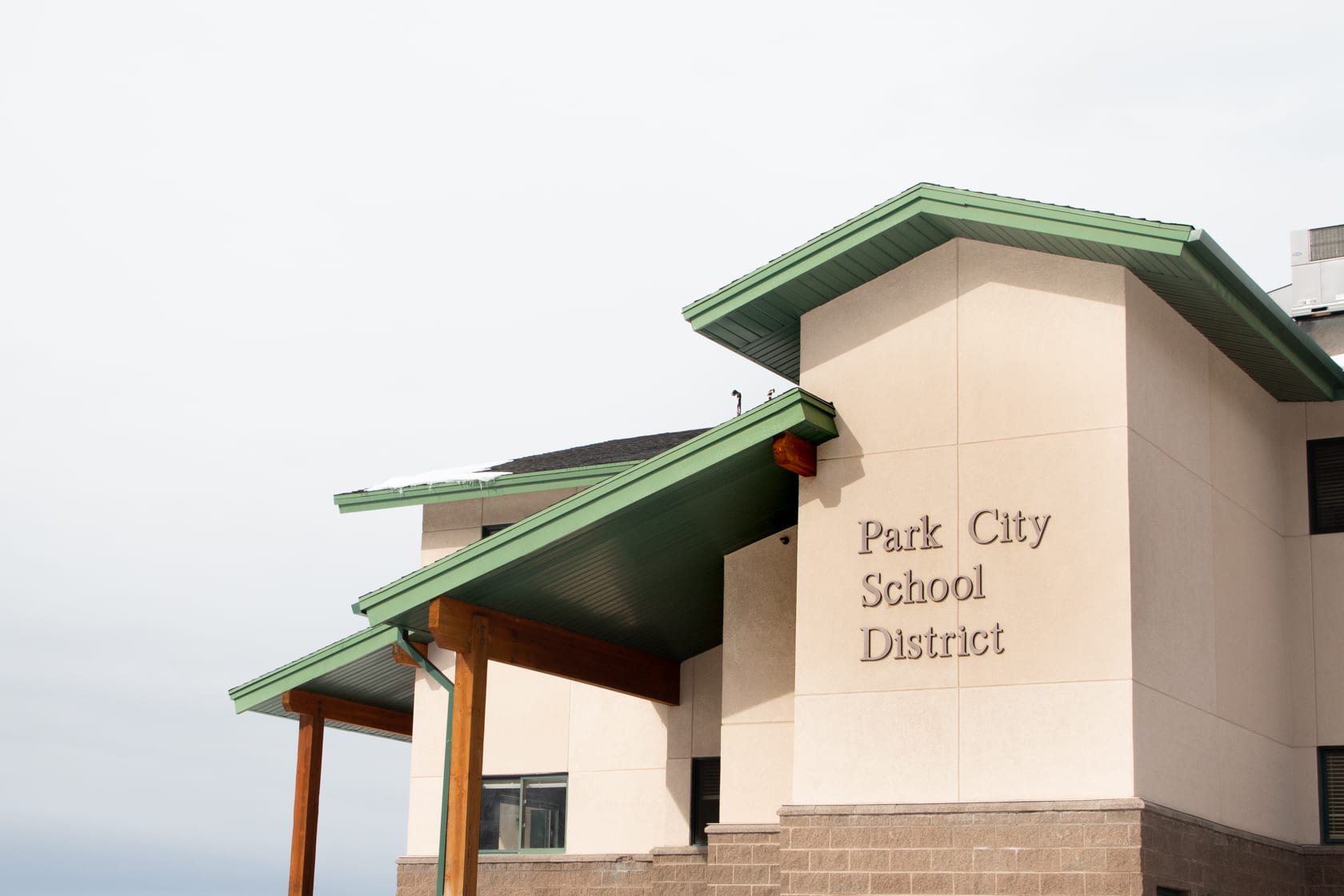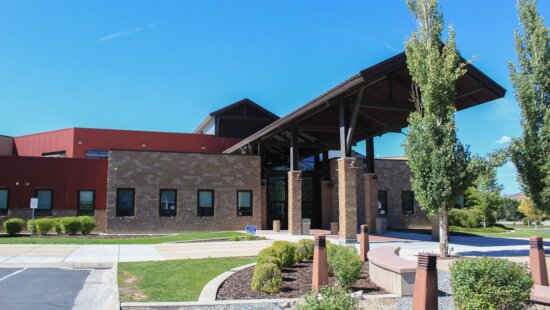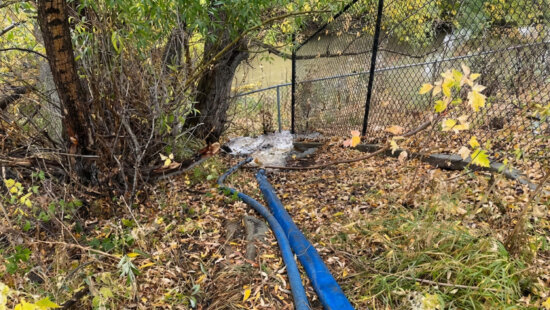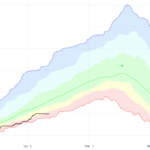Education
Park City students divert thousands of pounds of food waste through lunchtime composting program
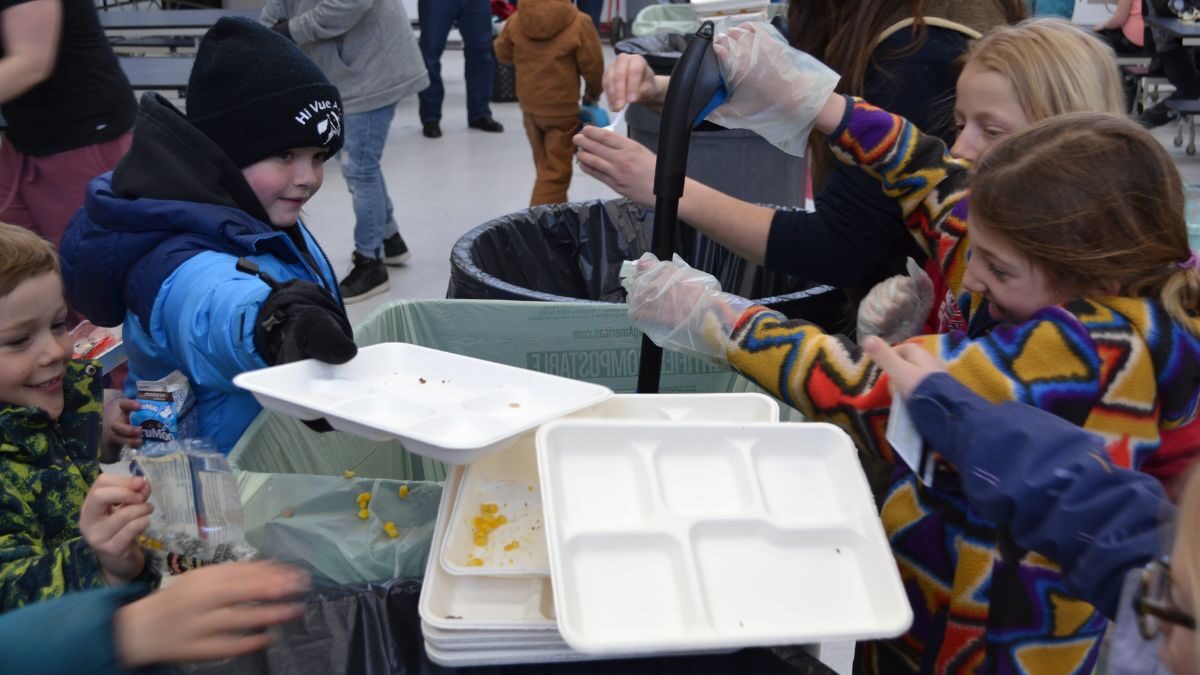
Students at Jeremy Ranch Elementary School sort the leftovers from their lunch trays as part of their school composting program. Photo: Ashtyn Asay // TownLift
PARK CITY, Utah — Lunchtime at Jeremy Ranch Elementary School comes with the usual din of children laughing, eating, and talking, but as the kids finish their food something different happens.
Each child makes their way to plastic bins in the middle of the cafeteria and begins to sort the items left on their tray between those that can and can’t be composted.
Student members of the school’s Green Team supervise their peers during this process. They help younger classmates put food and garbage into the right bins, and correct any mistakes.
“We stand by the compost bins, take trays and stack them,” said Lily Thomas, a fifth-grade Green Team volunteer at JRES. “If anybody accidentally throws their trash in the compost bin we usually have a grabber and we grab it all out.”
This is all a part of Jeremy Ranch Elementary’s composting program, which is run in collaboration with the Parent Teacher Organization, and community partners like EATS Park City, Recycle Utah, and Spoil to Soil. Similar programs have popped up in schools throughout Park City School District.
Momentum Recycling picks up the school’s compost twice a week and takes it to Wasatch Resource Recovery, where it is then converted into renewable energy and bio-based fertilizer.
A 2019 report from the World Wildlife Fund estimated that U.S. schools waste a total of 530,000 tons of food per year. Since March 2022, Jeremy Ranch Elementary alone has diverted 26,400 pounds of food from the landfill, enough to conserve 5.54 metric tons of CO2.
“Since we launched the program last spring we have diverted over 26,000 pounds of waste from landfills which is pretty amazing,” said Anna Wildman, a JRES parent and PTO board member. “Also the kids are learning about composting and understanding why food waste is a problem, because most people think that when you put food in the trash it just biodegrades. But when it goes into a plastic bag it actually just ends up turning into methane, which is a really dangerous gas.”
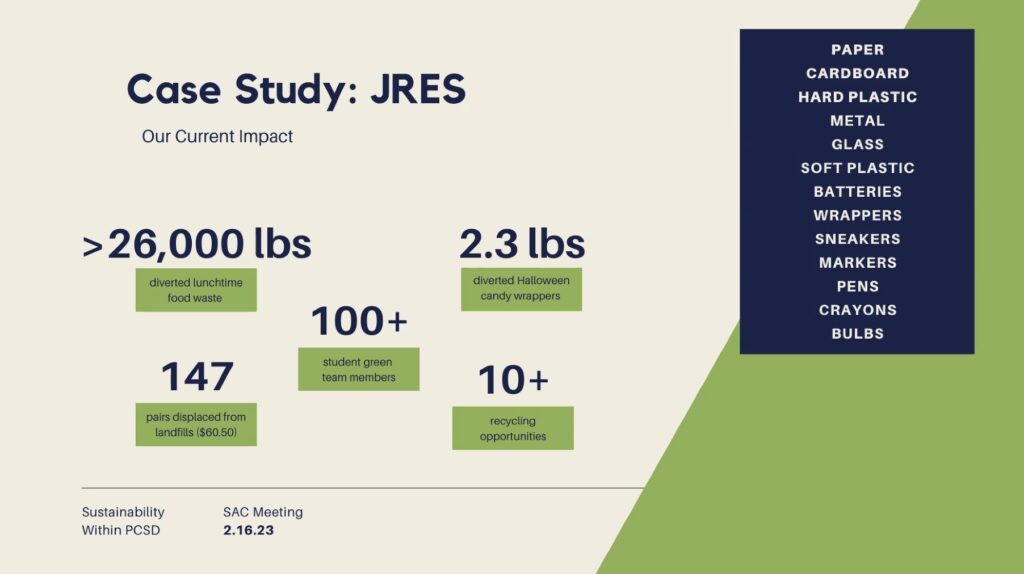
For the over 100 students that volunteer for the Green Team, the school’s composting program is both a way for them to learn more about food waste and the composting process, and an opportunity to take on a leadership role at school.
According to Shelby Cornett, a teacher at JRES and conservation and sustainability coordinator for PCSD, the students have enjoyed taking a more active role in what happens to their food after it leaves their lunch trays.
“They really take charge of it and almost communicate their efforts and why they’re doing it better than I could,” she said. “They really take ownership of what they’re doing, and you can tell that they care about the world, and they want it to be a place that’s worth living in, for themselves and other people.”
“I make sure that the younger grades or my grade don’t put milk cartons in the composting bin,” said August Groenenboom, a fourth-grade Green Team volunteer at JRES. “And I make sure that the food gets composted, and that we can do other things with it after.”
“Composting [food] is better, because when you put it into the compost it makes new stuff,” said Dash Prigge, a third-grade Green Team volunteer at JRES. “It’s fun and you get to help other kids, you get to teach them.”
















